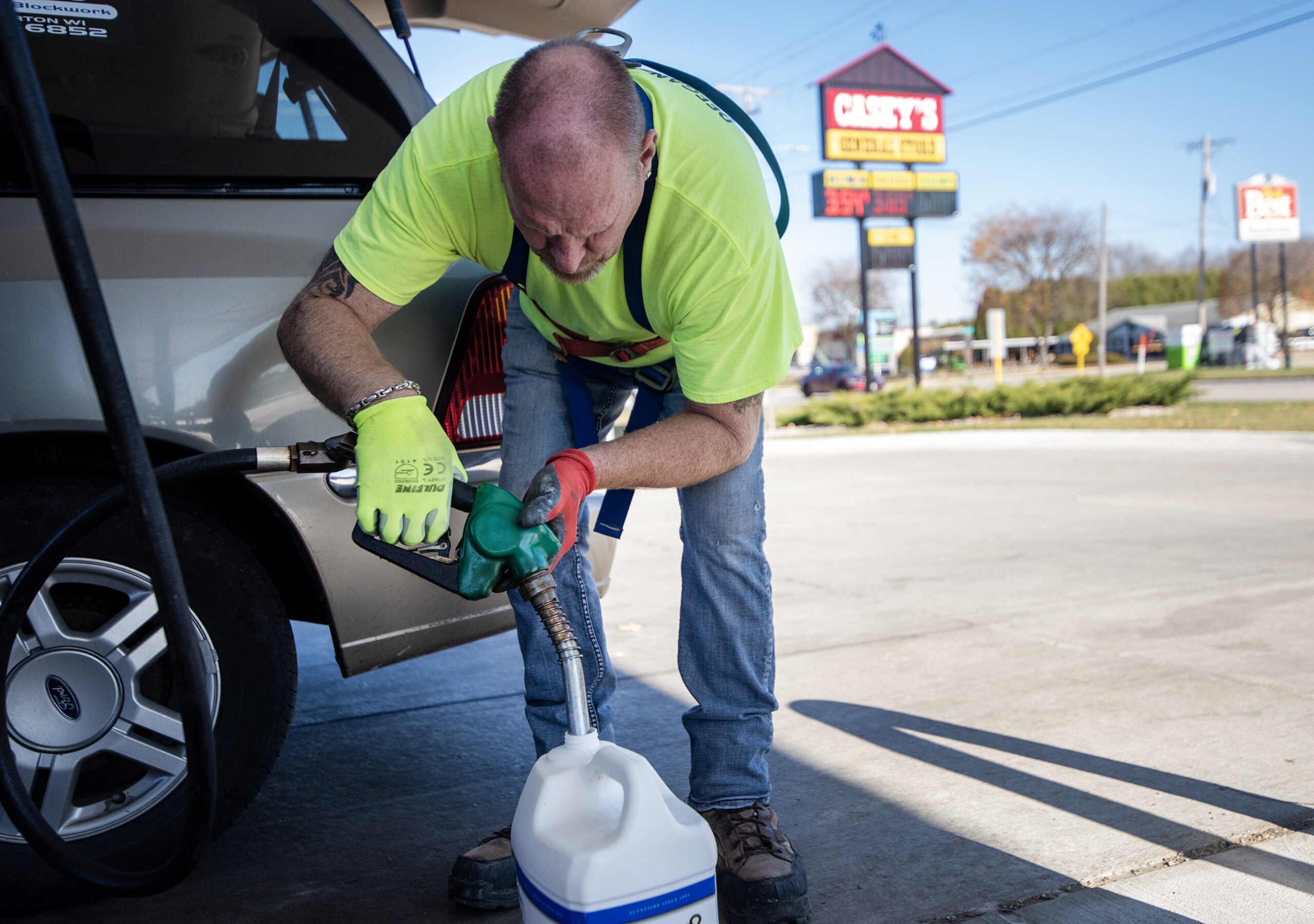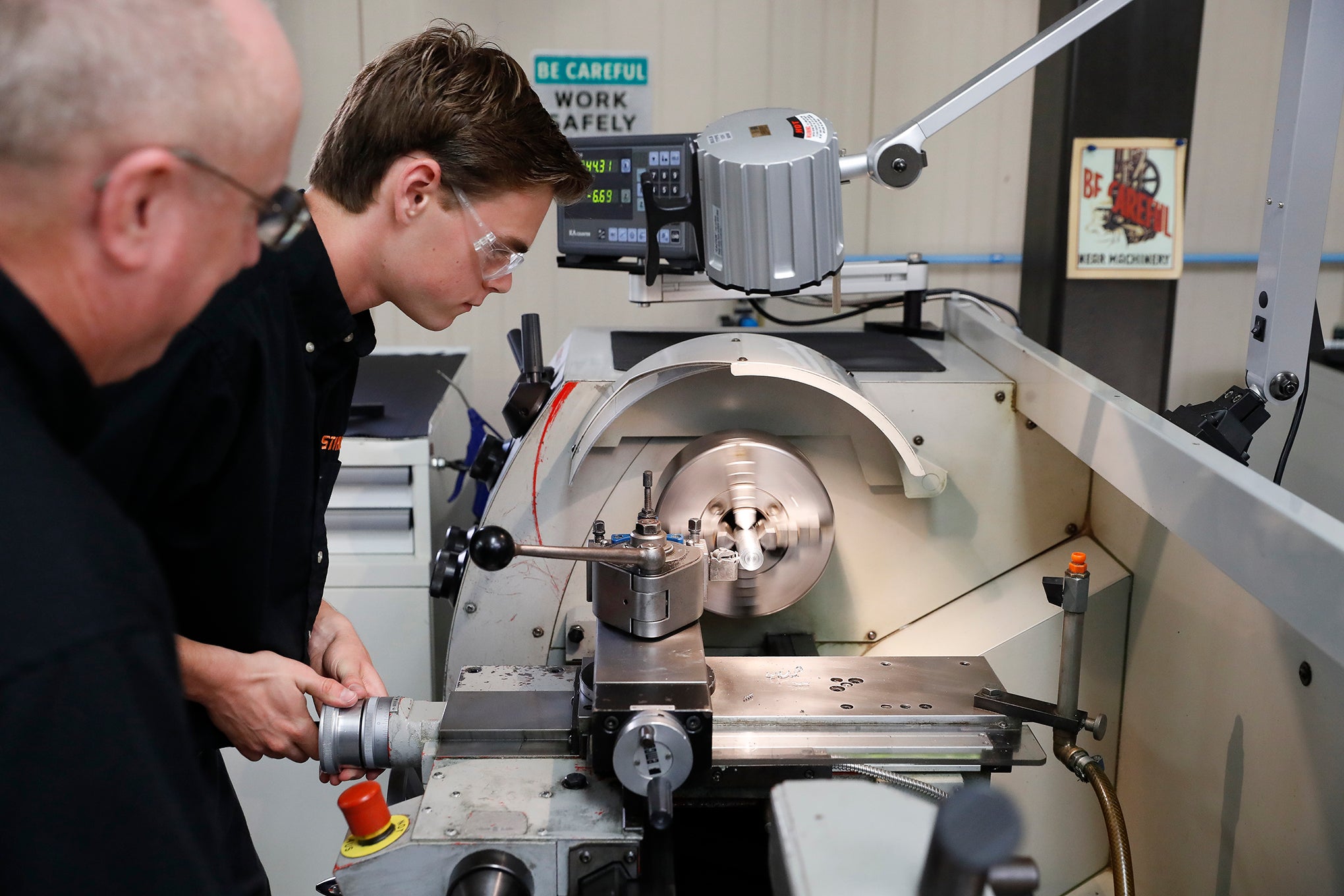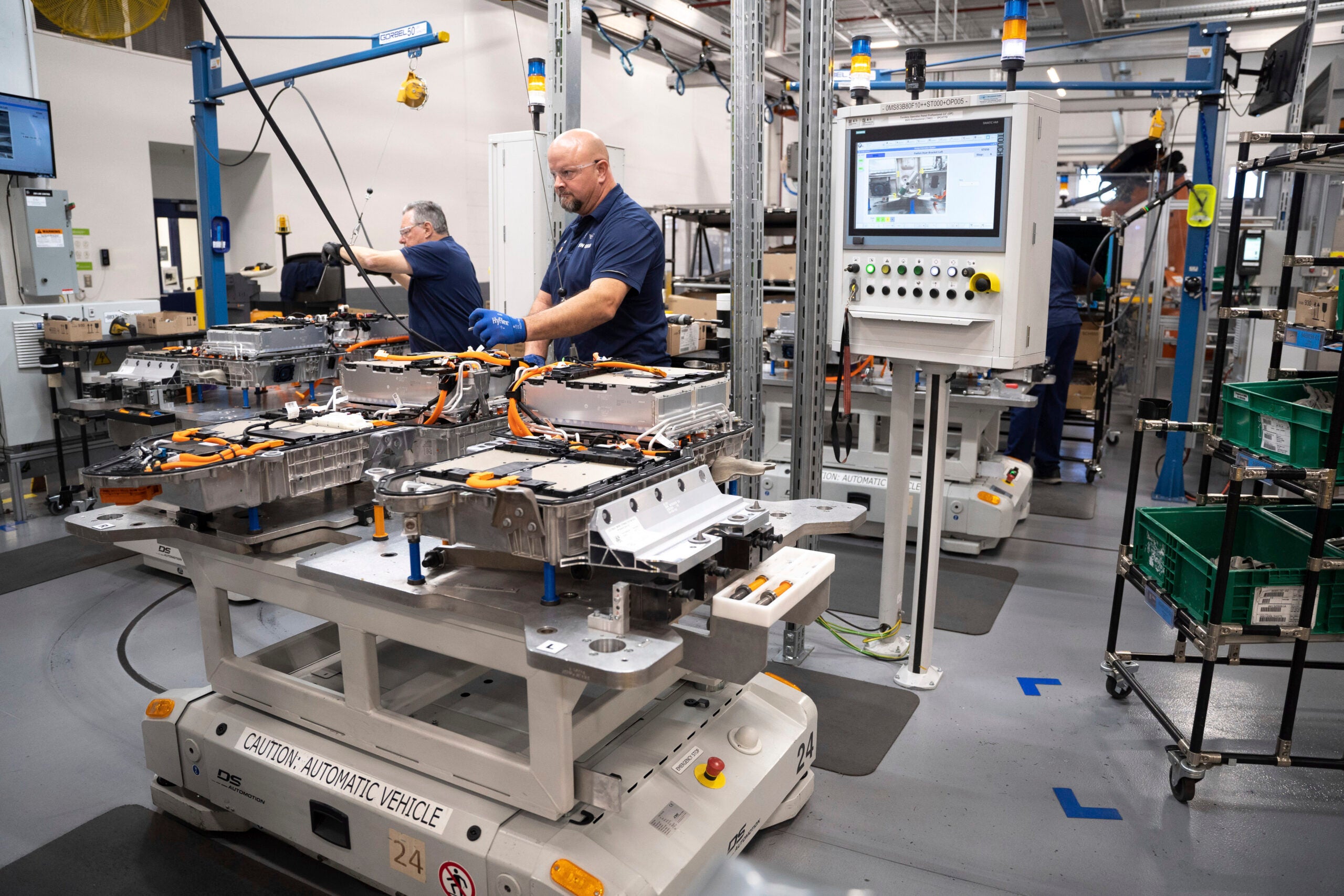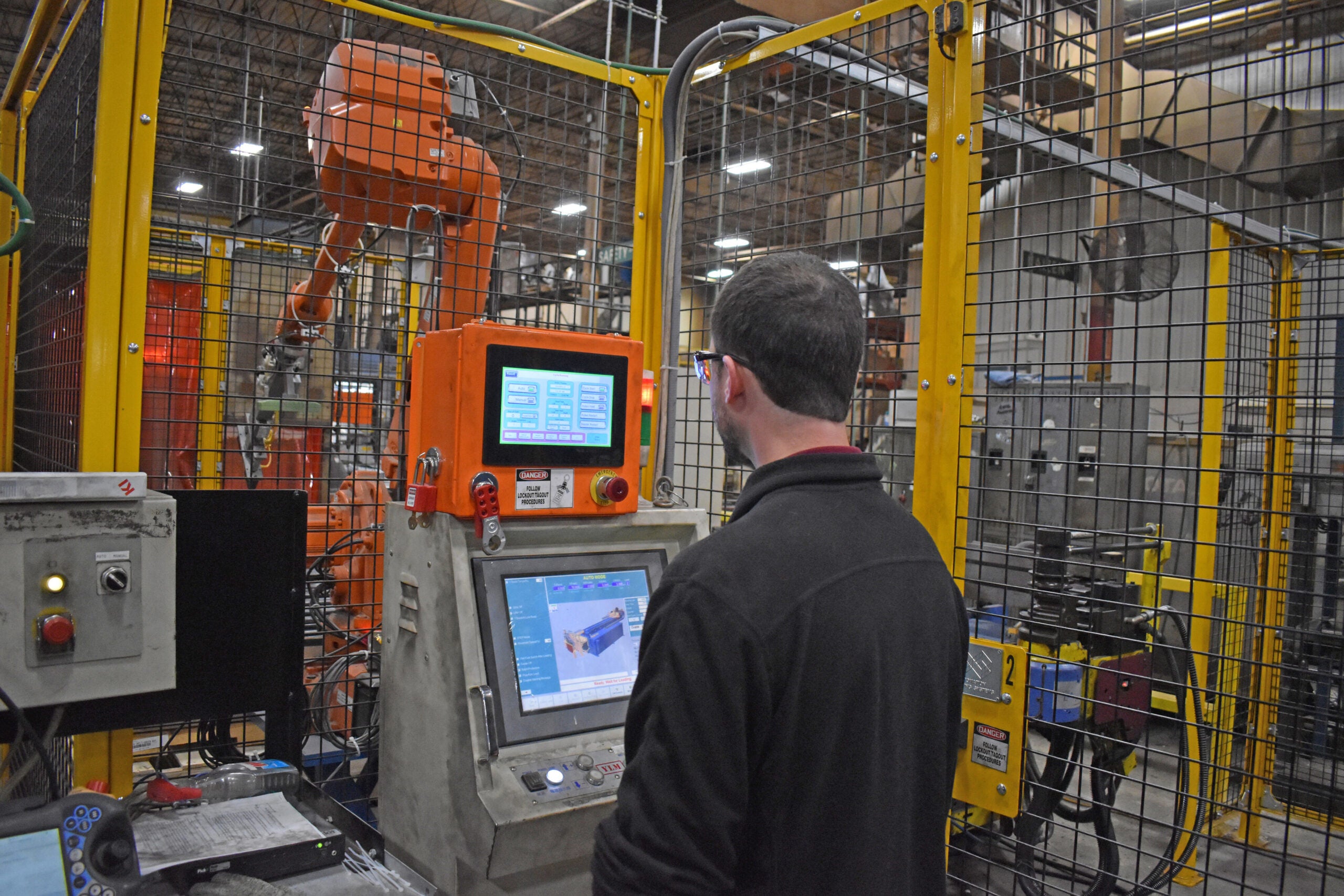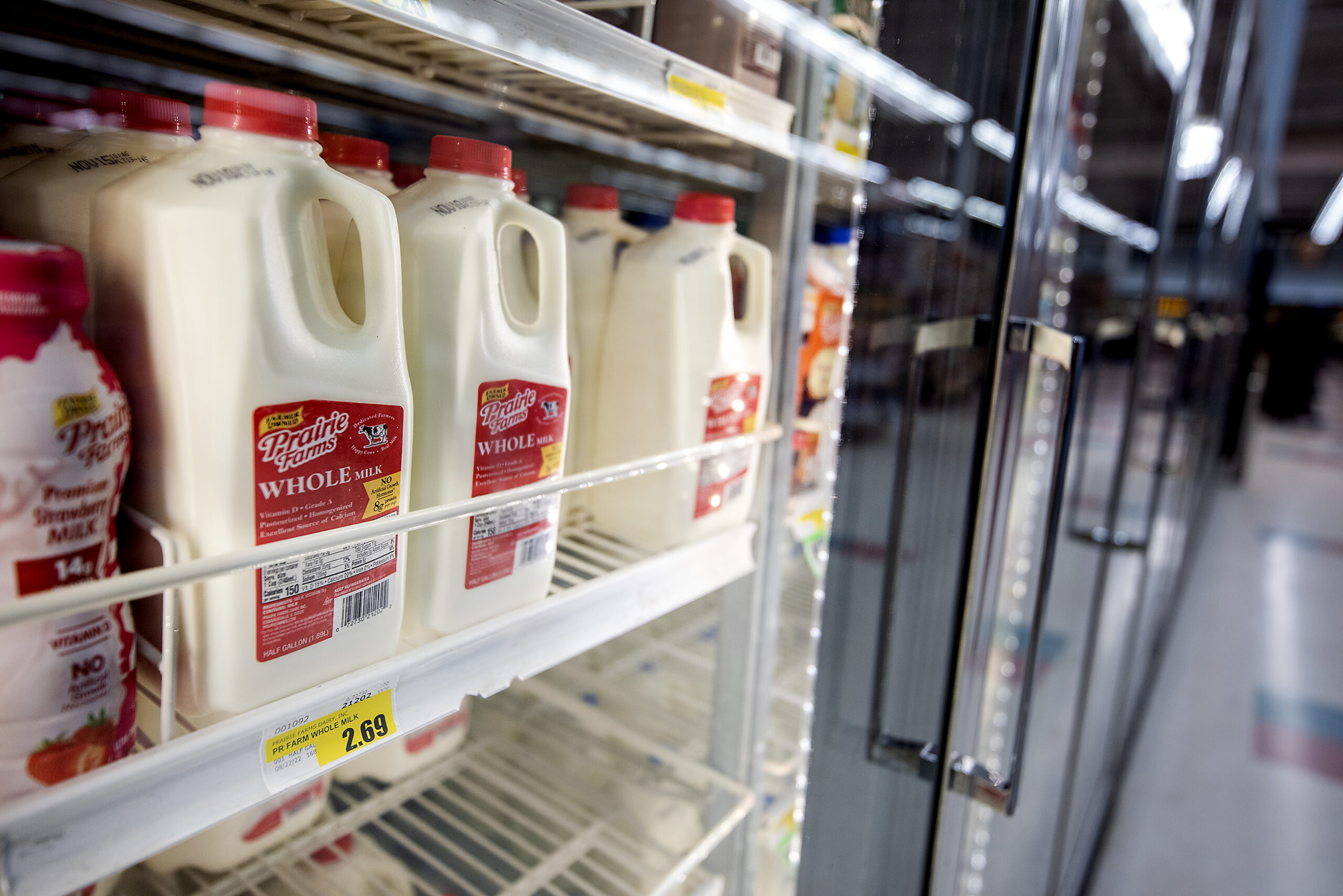A new industry survey shows the majority of Wisconsin businesses worry the state is headed toward a recession, but economists are less certain.
Wisconsin Manufacturers & Commerce released the results of a survey of 164 employers from various industries last week. The survey shows that 60 percent of businesses fear a looming recession, while inflation and the ongoing labor shortage are among employers’ top concerns.
“Wisconsin businesses are clearly pessimistic about the economy,” said Nick Novak, the association’s vice president of communications. “You have a majority of businesses believing that we’re heading towards a recession — that’s not a good thing.”
Stay informed on the latest news
Sign up for WPR’s email newsletter.
While businesses are worried about a possible recession, several factors could help the state fare better than America as a whole during an economic slowdown and even potentially avoid a recession altogether.
The survey also shows that companies are less pessimistic about Wisconsin’s economy than the national economy. Thirty-nine percent of employers said Wisconsin’s economy is strong, 57 percent said it was moderate, with only 4 percent calling it weak. Meanwhile, 20 percent said the national economy was strong, 62 percent said it was moderate and 18 percent said it was weak.
Wisconsin Economic Development Corp. Secretary and chief executive Missy Hughes said those numbers illustrate that Wisconsin’s businesses are concerned about national trends and headlines regarding a recession, but still feel good about their organizations.
“It’s definitely a real kind of dichotomy of their opinion, in that when they’re talking about the world, they’re worried; when they’re talking about their own business, they’re very healthy,” she said. “It demonstrates a feeling that (if) we’re going into any kind of a recession, (or) whatever the next six months is, we’re going in from a strong foundation.”
The state of the state’s economy
Despite pessimism about the future, Wisconsin continues to add jobs. According to the December 2022 jobs report, Wisconsin added 52,600 jobs last year, and set new lows throughout the year in unemployment claims.
In 2022, the state set a record high in real gross domestic product in the first quarter of the year, a record high in the number of people employed and record low unemployment, according to the state Department of Workforce Development.
The state also continued to outperform the country as a whole in terms of unemployment and labor force participation. Wisconsin’s unemployment rate in December was 3.2 percent, while the nation’s was 3.5 percent. The state’s labor force participation rate was 64.7 percent, while the country’s was 62.3 percent.
“Wisconsin’s unemployment rate remains below the national rate and our labor force participation rate remains above the national rate while our economy continues to create jobs,” said Amy Pechacek, Department of Workforce Development secretary-designee, in a statement.
Even with the encouraging employment data, however, businesses continue to combat inflation and a persistent labor shortage.
In the survey, 59 percent of employers said inflation increased the cost of doing business by more than 10 percent, while 85 percent of respondents said they had trouble hiring employees.
“Not only are their raw material costs going up, but they’re also seeing labor costs go up as they’re trying to attract more workers and retain workers that they currently have,” Novak said.
Between inflation, the labor shortage and rising interest rates, Hughes said Wisconsin businesses are overwhelmed.
“The main concerns that they have are just how many pieces are moving on the chessboard at once,” she said. “You’ve got difficult supply chains, you’ve got Ukraine, you’ve got China, you’ve got interest rates, you’ve got inflation. And they’re just looking to determine, ‘How can I stabilize so that I only have three pieces moving at once rather than 10?’”
Inflation, and efforts to slow it, are contributing to a potential economic downturn this year, but Wisconsin’s labor shortage has existed for years and presents a long-term challenge for the state’s economic growth.

Will Wisconsin enter a recession?
Steven Deller, professor of agricultural and applied economics at the University of Wisconsin-Madison, said U.S. and global economic activity is expected to decline in 2023.
Deller cited the Wall Street Journal’s Monthly Survey of Economic Forecasters, which averages 68 economic forecasts from individuals, organizations and universities, in a recent presentation.
“There’s pretty much consensus that we’re going to go into a slowdown, and that, if we go into a recession, it is going to be a very mild recession,” he said. “There’s actually a significant number of economists that are actually saying, ‘No, we’re not going to go into a recession. We’re going to go into a serious slowdown.’”
The main driver is the Federal Reserve’s effort to curb inflation. Similar to when the U.S. experienced high inflation in the late 1970s and early ’80s, the Federal Reserve is raising interest rates to slow consumer and business spending.
When the Fed raised interest rates to curb inflation in the 1980s, the increases were steep and ultimately led to a deep recession.
At the time, it was the worst recession the U.S. experienced since World War II. The country saw the national unemployment rate rise to more than 10 percent. However, inflation fell from 8.9 percent in 1981 to 3.8 percent the next year.
This time around, Deller said the Fed has raised interest rates more gradually in hopes of avoiding a recession, while also reducing inflation. He said the Fed’s actions could lead to lower inflation after an economic slowdown, but the war in Ukraine and another COVID-19 lockdown in China have the potential to keep inflation high.
“Those are the two wild cards: what’s happening with Ukraine — and God forbid that spills over into neighboring countries — and second is we’re still not out of the woods in terms of our supply chain problems,” Deller said.
At the same time, if the federal government fails to raise its debt ceiling before it defaults on its debts, it could lead to a global financial crisis, according to U.S. Treasury Secretary Janet Yellen.
How would a recession impact Wisconsin?
Although an economic slowdown could be on the horizon, Wisconsin’s labor shortage could prove advantageous to avoiding a major spike in unemployment.
“It may actually help lessen the recession just a little bit, because that unemployment rate might not tick up as much as it would if we had more people living here in Wisconsin,” Novak said.
According to Deller’s presentation, national unemployment is predicted to peak around 4.7 percent next June before coming down again.
At a media briefing last week, Wisconsin Department of Workforce Development chief labor economist Dennis Winters said the state’s lack of workers could insulate it in the event of an economic downturn.
“We don’t expect, even in a mild recession, for the unemployment rate to go up very far, just because of the dearth of workers that we have all around,” Winters said.
And, despite their fears of a recession, 60 percent of employers surveyed by WMC say they plan to increase their number of employees in the next six months, while 36 percent plan to keep the same number of employees.
“(If they are) truly thinking that their business is going to go into recession, they’re thinking about, ‘I might have to lay people off,’ but that’s not what these businesses are saying,” Hughes said.
Novak added that Wisconsin’s strong manufacturing sector could also help the state’s economy through a potential recession.
“While they may see other parts of the economy and other types of businesses around the country starting to see more of a downturn, they still believe that they’re going to be in a pretty strong position for the year,” he said. “Because we have a strong manufacturing sector here in Wisconsin, one of the biggest manufacturing states in the country, that’s really helping to buoy the economy.”
Wisconsin Public Radio, © Copyright 2025, Board of Regents of the University of Wisconsin System and Wisconsin Educational Communications Board.
